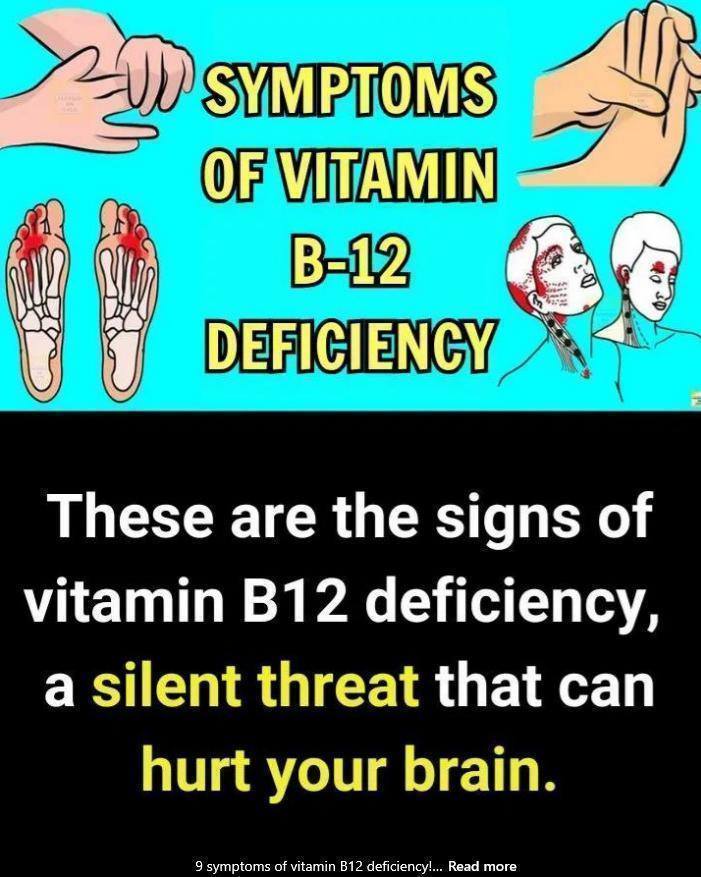ADVERTISEMENT
### **1. What Is Vitamin B12?**
Vitamin B12, also known as cobalamin, is a water-soluble vitamin that is essential for the normal functioning of the brain and nervous system. It is a crucial nutrient that helps with the formation of red blood cells and the production of DNA, the genetic material in all cells. Vitamin B12 is involved in various enzymatic reactions and is necessary for the metabolism of fatty acids and amino acids, which are vital for cellular energy production.
Unlike some vitamins that the body can produce on its own, vitamin B12 must be obtained through diet or supplements, as the body cannot synthesize it. It is primarily found in animal-based foods like meat, dairy, eggs, and fish. Because of its role in neurological function and overall health, maintaining sufficient levels of vitamin B12 is crucial for long-term well-being.
—
### **2. Why Is Vitamin B12 Important for Your Health?**
Vitamin B12 serves several key functions in the body, all of which are crucial for maintaining good health:
– **Nerve Health**: Vitamin B12 is vital for maintaining the health of the nervous system. It helps produce myelin, the protective coating that surrounds nerve fibers, allowing them to transmit signals efficiently.
– **Red Blood Cell Production**: B12 is involved in the production of red blood cells. A deficiency in B12 can lead to a condition called megaloblastic anemia, where the body produces large, immature red blood cells that are unable to function properly.
– **DNA Synthesis**: Vitamin B12 plays a key role in the synthesis of DNA, which is necessary for the growth, division, and repair of cells. Without enough B12, the body cannot make DNA efficiently, which affects many biological processes.
– **Energy Production**: Vitamin B12 is important for converting food into energy. It helps metabolize fats and proteins and supports mitochondrial function, the powerhouse of your cells.
For these reasons, adequate vitamin B12 levels are essential for overall health and well-being.
—
### **3. How Do You Get Vitamin B12?**
Vitamin B12 is found naturally in animal-based foods, so it can be challenging for people following a vegetarian or vegan diet to obtain adequate amounts. Some of the best sources of vitamin B12 include:
– **Meat**: Beef, pork, and lamb are all excellent sources of vitamin B12.
– **Poultry**: Chicken and turkey also provide significant amounts of B12.
– **Fish and Shellfish**: Salmon, tuna, sardines, and shellfish like clams, mussels, and oysters are high in vitamin B12.
– **Dairy Products**: Milk, yogurt, and cheese are good sources of vitamin B12.
– **Eggs**: Eggs, particularly the yolks, contain vitamin B12.
For those who follow vegetarian or vegan diets, fortified foods (such as plant-based milks, cereals, and nutritional yeast) and supplements are often necessary to meet daily B12 requirements.
—
### **4. What Happens When You Don’t Get Enough Vitamin B12?**
A deficiency in vitamin B12 can lead to a wide range of health problems. In the early stages, symptoms may be subtle, making it difficult to recognize. However, if left untreated, B12 deficiency can lead to severe and irreversible health conditions. The body stores vitamin B12 for years, so it may take time for symptoms to appear. However, once symptoms manifest, they can affect various systems in the body.
Some of the most common effects of vitamin B12 deficiency include:
– **Anemia**: B12 is required for the production of healthy red blood cells. A lack of B12 can result in megaloblastic anemia, characterized by tiredness, weakness, and pale skin.
– **Nervous System Problems**: A deficiency in B12 can damage the nerves, leading to symptoms like tingling or numbness in the hands and feet, difficulty walking, and cognitive problems.
– **Cognitive Decline**: Vitamin B12 deficiency has been linked to memory loss and difficulty concentrating, which can be mistaken for signs of aging or early dementia.
Now, let’s explore the specific symptoms and signs that might indicate a vitamin B12 deficiency.
For Complete Cooking STEPS Please Head On Over To Next Page Or Open button (>) and don’t forget to SHARE with your Facebook friends
